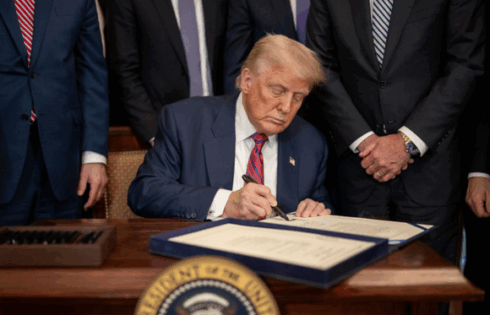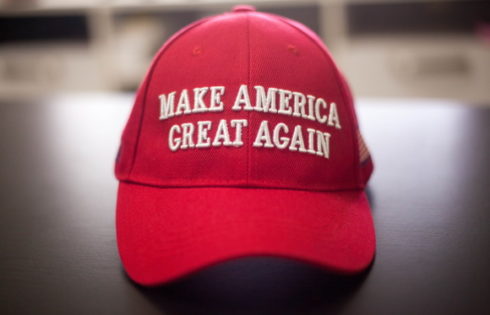
Because they threaten the vanity of faculty
You’ve probably seen the College Pulse survey we commissioned that found nearly three-quarters of self-identified Republican and Republican-leaning students have withheld their political views in class for fear of being graded down.
This was not a shocking finding: Two years ago the Cato Institute found college students more likely to censor their views than the general public “because others may find them offensive.”
They were also more likely to defend the censorship of others, as Heterodox Academy senior fellow Musa Al-Gharbi noted this spring. (This finding has been widely replicated.)
Al-Gharbi, also a sociology fellow at Columbia University, has perhaps the most nuanced thoughts on the fraught subject of bias in grading that I’ve seen, and he shares them in a helpful National Review essay this week.
Those who should be the most worried about their views harming their academic performance are not undergraduates, he argues. They are Ph.D. students.
He digs into a study this spring that found only the narrowest difference between grades for self-identified liberal and conservative undergrads, even as it confirmed liberals are closer to faculty than conservatives. (What I found most notable at the time: Conservatives and liberals switch places on grades between high school and college.)
Al-Gharbi finds it more likely that faculty are going easy on students in general because “we really hate haggling with students about the grades we assign” and don’t want “to get docked on our teaching evaluations.”
MORE: 73% of GOP students have withheld political views to protect grades
Unlike Ph.D. students, undergrads are also temporary nuisances to faculty, and political disagreements don’t threaten the vanity of their professors:
Many inflate grades, bend over backward to provide accommodations, and lower their workloads and standards to enable such students to flow through their classes and out into the world with minimal friction. …
It is easy (perhaps too easy?) for us to write off differences in perspectives as products of students’ relative youth, inexperience, ignorance, or unexamined beliefs. We often simply assume that they would no longer hold the views they do — that their positions would be closer to our own — if they had read all that we’ve read and thought about issues as long as we have.
All this goes out the window with Ph.D. students, an older cohort who will be around for several years and may be even better read than faculty on the latest research. If hired as an assistant professor, there’s another 6-7 years on the tenure track, and then if they get tenure …
In short, disputes with Ph.D. students and faculty tend to be much more challenging to refute or ignore — and can be more persistent — than disagreements with undergraduates. …
A lot more is at stake in the event of deep disagreements with Ph.D. students or (especially) peers, and faculty react accordingly. Most ideological discrimination by professors is against other faculty, in peer review and institutional review boards as well as in hiring and promotion decisions. There is some discrimination against Ph.D. students (i.e. future faculty) through admissions committees.
There’s better evidence of conservatives self-censoring as they pursue an academic career, he notes:
Many faculty conceal their conservative or religious leanings — and avoid work on controversial topics — in order to preserve good relations with their left-leaning colleagues, avoid being targeted by student activists, and otherwise protect their professional standing.
MORE: In Colorado, conservatives fight back against classroom bias
We’ve covered several cases where grad students had to go to court to fight viewpoint discrimination in their programs, most notably William Felkner and the sociology program at Rhode Island College, which took nearly 15 years to reach a jury.
For most students, they won’t have to go to court to defend the investment they’ve made in their (undergraduate) education. They’ll have to make educated guesses about how freely they can speak, depending on the implicit and explicit bias displayed by their professors, without getting an artificially low grade.
If they don’t graduate, it likely won’t be because of faculty bias. Yet broad statistics like those cited by Al-Gharbi don’t determine every individual case, and it’s reasonable for students to believe they will be graded unfairly based on their bloviating, openly contemptuous professors.
They have every personal incentive to hide their views – like Al-Gharbi said, they are just passing through as undergraduates.
But until more of them take a risk and come out of the political closet in class, conservatives will continue to embolden those unabashedly biased professors to abuse them academically – and shut up everyone else to the right of Bernie Sanders.
MORE: Jury trial for college that forced conservative to lobby for leftist causes
IMAGE: Matej Kastelic/Shutterstock
Like The College Fix on Facebook / Follow us on Twitter







Please join the conversation about our stories on Facebook, Twitter, Instagram, Reddit, MeWe, Rumble, Gab, Minds and Gettr.